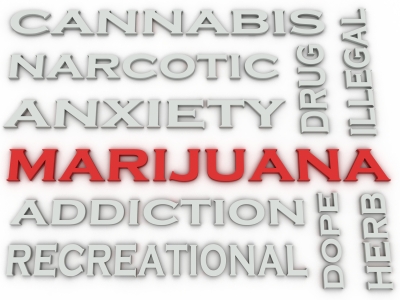People have a hard time believing marijuana is addictive. Indeed, for many people it is not. It is similar to alcohol in that most people who use it do not become dependent. Most can use it in a social, recreational situation. However, like alcohol, there are some who cannot control their use.
Someone who is addicted to marijuana always says that other people do not understand it. They say it has health benefits, and that it is not an addictive drug. They say of course they could stop if they wanted to. They ignore the irritation of their loved ones, and they ignore the signs that it is a problem. Their productivity is lowered, and their emotional range is blunted. They tend to use it several times per day. It is often the center of their social group.
Heavy marijuana users tend to need it to fall asleep. Their anxiety becomes so high that it is hard to quiet their minds before falling asleep. What is ironic about this is that the majority of people who abuse marijuana claim it isn’t addictive. However, if your teenager needs it in order to get to sleep, their body is dependent on it.
According to drugabuse.gov, 1 in 6 teens who use cannabis end up addicted to it during their lifetime. For those who use it daily, the number skyrockets to 1 in 4. Nearly 1 in 5 teenagers who enter a drug rehab facility go to treatment because they can’t quit using marijuana.
As a therapist who works with teens that have drug problems, I find that the teens who abuse marijuana are initially resistant to the idea they are addicted. This is much more true than the teens who abuse other drugs. I have yet to sit down with an opiate, meth, cocaine, or anxiolytic (such as Xanax) addict who thinks there is absolutely no problem with their drug use. Yes, some of these drug users are in denial about how intense their addiction might be, but they all agree that it would be better to be sober. This is not true with adolescents abusing marijuana. Most of them maintain a moderate level of functioning, so they argue that they’re completely fine. It takes a lot of work to break through a marijuana addict’s denial wall because addiction to marijuana is more subtle.
If this describes your teenager, my heart goes out to you. You might even feel torn about whether marijuana is addictive yourself. One thing that may help you understand is according to http://adai.uw.edu/marijuana/factsheets/potency.pdf, marijuana is 2 to 7 times more potent than in the 1970s. Also, teens tend to smoke the flower buds of the cannabis plant, which is stronger than the leaves previous generations tended to smoke. Many now use “dabs,” which is concentrated THC inhaled through a vape pen. According to justthinktwice.gov, dabs are approximately four times as strong as the highest grade marijuana; they are absolutely addictive. Previous generations also were more likely to begin use in their 20s, but now that is starting 5-10 years sooner.
If this blog is hitting home a little too closely, your teen has possibly begun to have a marijuana dependence. They will argue with you that they feel fine, but it is still a problem behavior. If you want your teen to be engaged, present and productive, then encourage them to quit. If they cannot or will not quit, get them help.
Helping teens grow and families improve connection,
Lauren Goodman, MS, MFT




